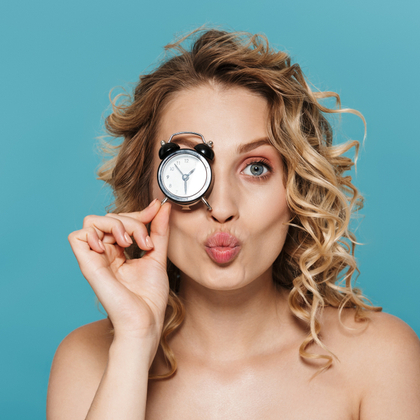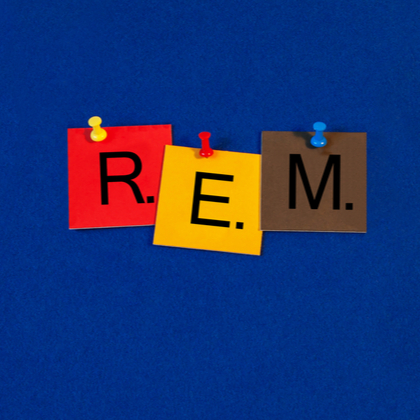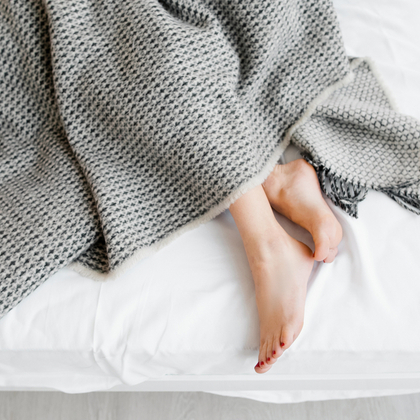![]()
As insomnia and sleep disorders become increasingly prevalent, so too has the use of sleep technology. Recent innovations have given rise to scores of fitness tracker devices, many of which can also monitor and record sleep.
Sleep trackers claim to inspire positive behavioural change around sleep. Many devices aim to track how much sleep you attain each night, calculate how much time you spend in each sleep stage light, deep & REM — and even determine if you suffer from a sleep disorder.
Steadfast proponents believe sleep monitoring provides valuable insight into sleeping patterns and how to improve them. But are they as effective or necessary as has been suggested – and could they even, paradoxically, worsen sleep quality? Here, we take a look at how helpful sleep tracking is.
What are sleep trackers?
Sleep trackers monitor if you’re asleep and calculate the amount of time you spend sleeping. While most traditional ‘wearable’ trackers – typically in the form of a watch – record heart rate and movement during sleep, a growing range of ‘non-wearables’ sit below or above your mattress, on a bedside table, or as an app on your phone. These devices use echolocation, a reflection technique that relies on low-power radio waves to measure snoring and breathing.
How do sleep trackers monitor sleep quality?
The quality of your sleep (actigraphy)
Once in ‘sleep mode’, your sleep tracker tries to evaluate sleep quality by monitoring your heart rate and movement. Devices claim to detect tossing and turning, changing sleeping positions, and even if you get up throughout the night. Theoretically, this data provides insight into how well you sleep.
How much time you spend in each stage of sleep
Sleep trackers may also have the ability to analyse the amount of time you spend in each sleep stage. With this information, some devices can schedule an alarm when you’re most likely to be in light sleep, making it easier to wake up.
The quality of your sleep environment
Some sleep trackers monitor other factors that may affect your ability to sleep, such as the temperature of your bedroom or the amount of light.
Health and lifestyle metrics
Some sleep trackers may monitor how other aspects of your daily routine - exercise, step-count, diet and stress levels — impact the quality of your sleep.
How much deep sleep should you get a night?
As we’ve already mentioned, some tracking devices claim to monitor how much time you spend in each phase of the sleep cycle. Although every stage of the sleep cycle is critical, it’s generally agreed that deep sleep is the most essential for making us feel rested and restored. On average, a healthy adult needs one to two hours of deep sleep per eight hours of sleep each night1.
Are sleep trackers accurate?
Overall, wearable sleep trackers, such as headbands, rings, chest straps, and watches, do a relatively good job of measuring sleep duration. One study even found that a few wearable trackers recorded more accurate sleep data than some research-grade sleep devices2.
But while sleep-tracking devices can somewhat accurately track your total sleep vs. wake time, there’s still not enough evidence they can conclusively determine your light sleep from your deep sleep from your REM sleep. One reason for this is because you make similar movements during light and deep sleep. For a precise reading, you would need to partake in a comprehensive sleep study – or polysomnography – under the guidance of a sleep specialist.
However, it’s not just about the accuracy of sleep tracking devices; it’s also about adherence and compliance. Thinking about sleep monitoring in these two different verticals is critical. Ideally, you would invest in a sleep tracker that’s both highly accurate and highly adoptable.
As they often say in medicine: ‘what gets measured gets managed’. That’s why sleep tracking headbands and watches can be so divisive; people are more inclined to take them off before bed or forget to put them on. And if you’re not wearing your sleep tracker, it essentially becomes redundant regardless of how accurate it is.
A good sleep tracker needs to be a low-friction device – one that you don’t have to worry about charging every day or strapping on. You need to be able to fall into bed and not think about it. For some people, that means wearing a ring, which is more unobtrusive.
Should I be tracking my sleep cycle?
Benefits of sleep trackers
Many proponents of sleep tech believe health trackers can help cultivate healthy sleeping habits and inspire positive behaviour change. Tracking food intake can lead to healthier food choices. Tracking exercise can lead to better adherence. Tracking sleep, therefore, can surely lead to better sleep hygiene.
Sleep monitoring may prompt you to look squarely at your existing routine: do you feel lethargic and sluggish when you sleep from 10 pm to 6 am, but energised if you shift your sleep schedule from 11.30 pm to 7.30 am? Do you sleep better on the days you exercise? Is your sleep disrupted if you have a coffee after lunch? Does drinking alcohol in the evening decimate your REM sleep?
By observing your sleeping patterns with a tracking device, you may feel inspired to make different choices that support your sleep, such as increasing your physical activity or drinking less caffeine.
Limitations of sleep trackers
There is, however, a danger for device users to develop anxious tendencies and become hyper-obsessed with sleep tracking. And this, ironically, further disrupts sleep.
In a 2017 study published in the Journal of Clinical Sleep Medicine, researchers found that a proportion of sleep tracker users suffer from a condition known as ‘orthosomnia’ 3. The derivative of ‘ortho’ is ‘straight’ or ‘correct’. And so, people with orthosomnia worry about getting their ‘sleep straight’. For some users, sleep monitoring can quickly become anxiety fuelling rather than a beneficial force that helps motivate them to make behavioural changes.
Since anxiety already causes sleep disturbances and insomnia, we would encourage you to discontinue using a sleep-tracking device if you start to feel anxious about it. And if you’re prone to anxiety or panic attacks at night, you may want to avoid purchasing one altogether.
If you’re keen to gain some insight into your sleeping patterns and how to improve them, sleep tracking could be a valuable and worthy investment. However, it’s also important to take the data with a pinch of salt and be mindful that using your device could become an unhealthy and anxiety-inducing habit.
For even more information on supporting your sleep hygiene, please explore the rest of our dedicated sleep hub.
References:
- Sleepfoundation.org. 2021. Stages of Sleep - Sleep Foundation. [ONLINE] Available at: https://www.sleepfoundation.org/how-sleep-works/stages-of-sleep
- Lee. J., Byun. W., et al. (2019). Comparison of Wearable Trackers’ Ability to Estimate Sleep. International Journal of Environmental Research and Public Health. 15(6), p.1265.
- Baron. K., Abbott. S., et al. (2006). “Orthosomnia: Are Some Patients Taking the Quantified Self Too Far?”. Journal of Clinical Sleep Medicine. 13(02), 351-354.
Related Posts

Olivia
Olivia Salter has always been an avid health nut. After graduating from the University of Bristol, she began working for a nutritional consultancy where she discovered her passion for all things wellness-related. There, she executed much of the company’s content marketing strategy and found her niche in health writing, publishing articles in Women’s Health, Mind Body Green, Thrive and Psychologies.
View More



